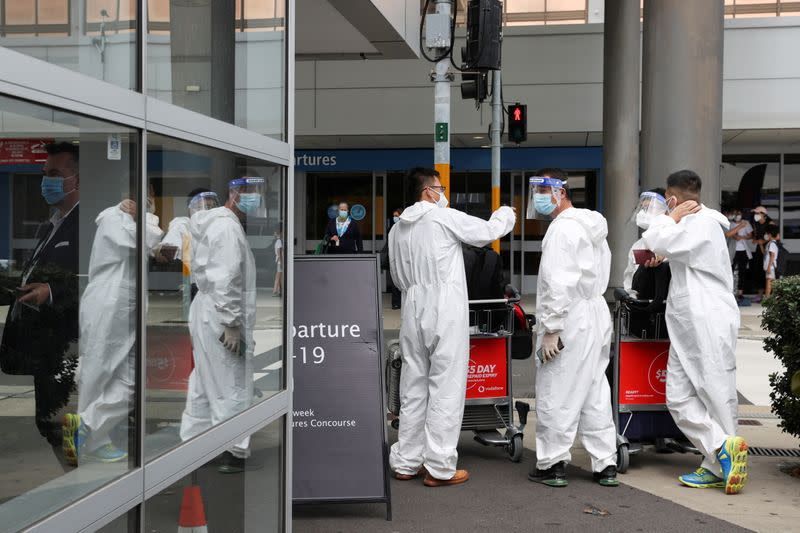What you need to know about the coronavirus right now
- Oops!Something went wrong.Please try again later.
- Oops!Something went wrong.Please try again later.
(Reuters) - Here's what you need to know about the coronavirus right now:
Omicron jolts markets on vaccine fears
The chief executive of drugmaker Moderna set off fresh alarm bells in financial markets on Tuesday with a warning that existing COVID-19 vaccines would be less effective against the new Omicron variant than they have been against Delta.
However, European Medicines Agency executive director Emer Cooke told the European Parliament that, even if the new variant becomes more widespread, existing vaccines will continue to provide protection.
The U.S. Centers for Disease Control and Prevention said on Monday everyone aged 18 years and older should get a booster shot.
New mask mandates and other measures aimed at curbing the spread of the variant came into force in England on Tuesday, as Prime Minister Boris Johnson eyed an expanded booster programme.
Regeneron Pharmaceuticals' COVID-19 antibody treatment and other similar drugs could be less effective against the new variant, the company said on Tuesday.
Forty-two cases of the variant have been confirmed in 10 European Union countries.
A further two cases of the variant have been detected in Ottawa, bringing Canada's total number of cases to five.
Australian authorities on Tuesday confirmed a person with COVID-19 had the new Omicron variant after disclosing that the person had been active in the community, but urged calm as they weighed up the severity of the strain.
India's health ministry said on Tuesday states should ramp up testing, while some cities delayed the reopening of schools as a precautionary measure.
Singapore will hold off on more reopening measures while it evaluates Omicron and will increase testing of travelers and frontline workers to reduce the risk of local transmission, authorities said on Tuesday.
German and Austrian incidence rate falls
The COVID-19 incidence rate has dropped slightly in Germany and Austria and stabilised in the Netherlands since the three countries introduced new measures to curb the spread of the virus, new data showed.
After becoming hot spots in a new wave of infections in western Europe, Austria went into a fourth full lockdown last week and the Netherlands and Germany imposed new restrictions.
Greece to make vaccinations for people over 60 mandatory
Greece said on Tuesday it would make COVID-19 vaccinations mandatory for people aged 60 and over in a move to quell a resurgent virus that is burdening a frail healthcare system.
Authorities said those who failed to comply from Jan. 16 would face a recurring monthly fine of 100 euros.
Chinese border cities limit rail imports
A few Chinese border cities are halting some non-container commodity imports by rail to reduce the risk of COVID-19 clusters caused by the virus being brought in from other countries amid a resurgence of infections in northern areas of China.
China's efforts to keep the virus out face increasing pressure as infections grow globally with the new threat of the Omicron variant, Mi Feng, a spokesperson for the National Health Commission, said on Tuesday.
Norwegians should wear face masks more, PM says
Norwegians should wear face masks on crowded public transport, in shopping malls and in taxis following a record surge in infections, Prime Minister Jonas Gahr Stoere said on Tuesday.
He stopped short of issuing mask mandates, as called for by some municipalities, urging instead an accelerated drive to give booster shots to all adults.
(Compiled by Linda Noakes; Editing by Bernadette Baum)


